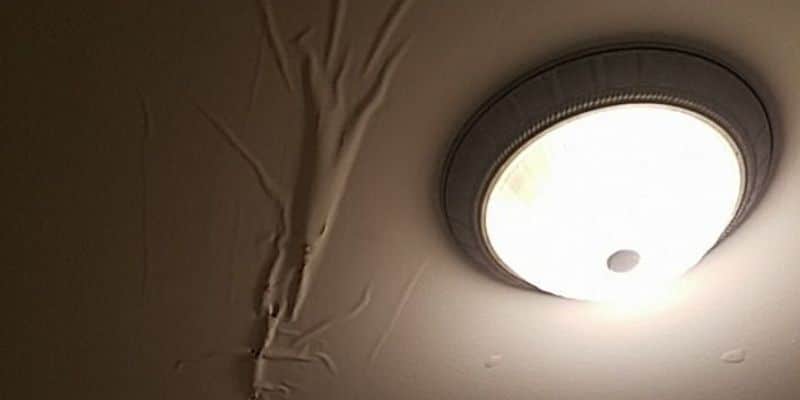Learn About Main Factors Contributing To Water Leakage in Your Home
Learn About Main Factors Contributing To Water Leakage in Your Home
Blog Article
What are your thoughts concerning How Fast Water Damage Can Ruin Your Home?

Leaks not just create waste of water yet can also cause unnecessary damage to your residence and also promote undesirable organic growth. By looking and comprehending for everyday scenarios that create leaks, you can protect your residence from future leaks and unnecessary damages.
Immediate temperature level modifications.
Severe temperature level changes in our pipes can trigger them to broaden and also get all of a sudden. This expansion and tightening may trigger splits in the pipes, specifically if the temperature level are below freezing.
Corroded water supply
This could be the reason of staining or bending on your water pipelines. If our plumbing system is old, take into consideration changing the pipelines considering that they are at a greater danger of rust than the newer models.
Faulty Pipeline Joints
The factor at which your pipes link is regularly the weakest web link in the waterline. Pipe joints can wear away in time, leading to water leaks. The bulk of pipe joints are not conveniently visible. If you have loud pipelines that make ticking or banging sounds, especially when the hot water is switched on, your pipeline joints are most likely under a great deal of stress. It is a good idea to have your plumber inspect your system yearly.
Elbowing in origins
Most water leakages begin outside the home instead than inside it. You may discover damp spots or sinkholes in your yard, and that could indicate that tree roots are invading water lines creating water to seep out.
Poor Water Connectors
Sometimes, a leak can be caused by loosened hoses and also pipes that provide your appliances. More often than not, changing is what causes the loose water Links. You could discover in the case of a cleaning maker, a pipe may spring a leakage because of shaking throughout the spin cycle. In case of a water connections leak, you might notice water running straight from the supply line or puddles around your home appliances.
Blocked Drains
Blocked drains might be frustrating and inconveniencing, but they can occasionally end up creating an overflow leading to burst pipelines. Keep removing any kind of materials that might drop your drains that can clog them to stay clear of such troubles.
All the above are root causes of leaks yet not all water leakages result from plumbing leaks; some leakages might originate from roof leaks. All leaks need to be fixed promptly to stay clear of water damages.
Leakages not only cause waste of water but can also cause unnecessary damage to your home and promote undesirable natural development. By looking and also comprehending for daily circumstances that cause leakages, you can shield your residence from future leakages and unnecessary damages. Today, we will look at six leak causes that might be triggering your pipes to trickle.
At times, a leak can be triggered by loose pipes as well as pipes that supply your home appliances. In situation of a water connections leak, you may notice water running straight from the supply line or pools around your devices.
How To Check For Water Leak In Your Home
How To Check for Leaks
The average household's leaks can account for nearly 10,000 gallons of water wasted every year and ten percent of homes have leaks that waste 90 gallons or more per day. Common types of leaks found in the home are worn toilet flappers, dripping faucets, and other leaking valves. These types of leaks are often easy to fix, requiring only a few tools and hardware that can pay for themselves in water savings. Fixing easily corrected household water leaks can save homeowners about 10 percent on their water bills.
To check for leaks in your home, you first need to determine whether you're wasting water and then identify the source of the leak. Here are some tips for finding leaks:
Take a look at your water usage during a colder month, such as January or February. If a family of four exceeds 12,000 gallons per month, there are serious leaks.
Check your water meter before and after a two-hour period when no water is being used. If the meter changes at all, you probably have a leak.
Identify toilet leaks by placing a drop of food coloring in the toilet tank. If any color shows up in the bowl after 10 minutes, you have a leak. (Be sure to flush immediately after the experiment to avoid staining the tank.)
Examine faucet gaskets and pipe fittings for any water on the outside of the pipe to check for surface leaks.
Undetected water leaks can happen without the home or business owner even realizing. If you suspect a water leak, but not able to find the source. It is time to contact a professional water leak detection service, The Leak Doctor.
How To Find a Water Leak In Your Home
https://www.leakdoctor.com/blog/How-To-Check-For-Water-Leak-In-Your-Home_AE197.html

I am just very eager about How to detect water leaks in your home and I'm hoping you enjoyed reading our entry. Sharing is caring. You won't know, you may just be doing someone a favor. Many thanks for your time. Kindly pay a visit to our website back soon.
Hot water issue? Call! Report this page